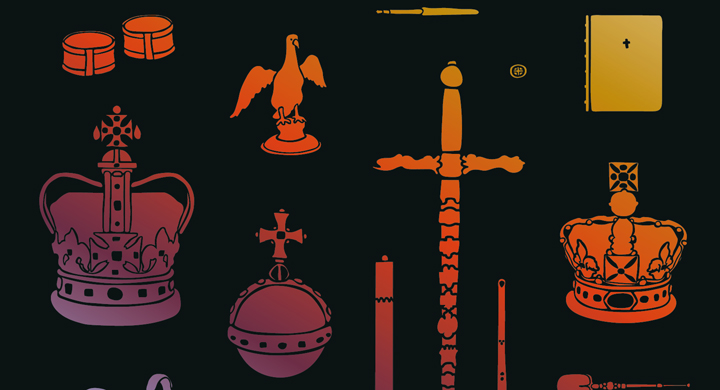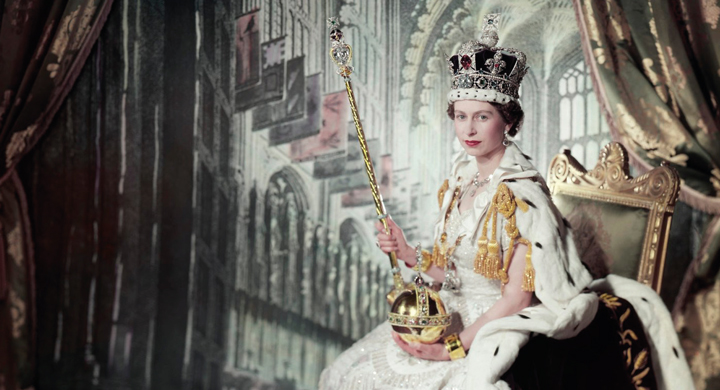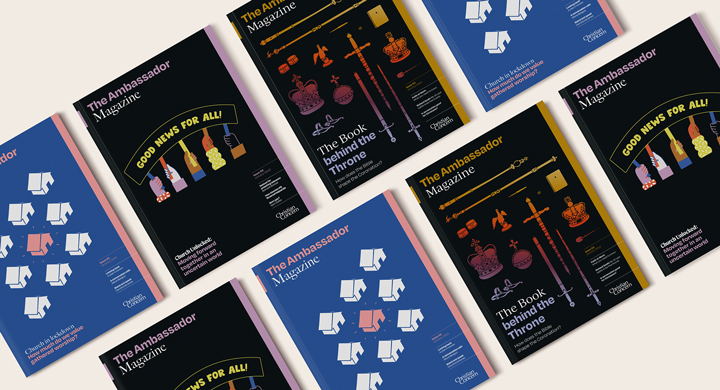In an article originally featured in the Ambassador Magazine, Jonathan Patrick Burnside, Professor of Biblical Law at the University of Bristol, writes on how the Bible shapes the Coronation
“The sovereign always exists, the person only is changed.”1
Nothing affirms this continuity more than the coronation of a new monarch.
Remarkably, the existing coronation practice of the British monarchy can be traced back over a thousand years to the crowning of the first King of All England, Edgar, in Bath Abbey in 973 AD. Edgar’s coronation service – devised by the then Archbishop of Canterbury, Saint Dunstan – has been the template for every coronation since. Key elements include the oath made by the monarch to God and a service of Holy Communion (in earlier times, the Mass).2
In Britain, although those of other faiths have affirmed the importance of maintaining the distinctively Christian character of the coronation,3 consideration has been given to undermining the wholly Christian and biblical basis of the coronation ceremony.4 For some, the ceremony remains objectionable on account of its exclusively Christian character. In such circumstances, it is asked, could a more interfaith coronation recoup a perceived loss of legitimacy in today’s multi-cultural society?

Steeped in the Bible
Addressing this question means coming to terms with the ways in which the Bible, and Christianity, have influenced the ceremony – and the British monarchy – down to its deepest roots. This is hardly to deny other influences.5
Nevertheless, it remains the case that, from the beginning, the coronation ceremony has been steeped in the Bible. This is seen, most obviously, in the fact that the monarch swears on the Bible and takes the Coronation Oath.
In 1953 Queen Elizabeth II publicly vowed that she would “… to the utmost of [her] power maintain the Laws of God and the true profession of the Gospel”.6
Key parts of the Order of Service are built around Old Testament ideas of kingship, law and justice.
The anthem “Zadok the Priest”, for example, which derives from 1 Kings 1:34-35, goes back, in various musical arrangements, to the very first coronation in 973 AD. Similarly, the anthem “I was glad”, which is taken from Psalm 122, was sung, for the first time, at the coronation of Charles II in 1661. A version of it has been sung at every coronation since. The psalm expresses the joy Israelite pilgrims felt, not only at being able to “go to the house of the LORD!” (verse 1), but also their delight at being in the place where “thrones for judgement” are located, as well as the “thrones of the house of David” (verse 5).
As with ‘Zadok the Priest’, the choice of anthems is intentional. Their longstanding use testify to a continuity in national desire to celebrate early Israelite forms of governance as the ideal for the British monarchy. As a result, it would be wrong to see this ideal for the British monarchy as a purely Mediaeval, or post-Reformation aspiration. The roots of this distinctively British – and, in earlier times, distinctively English – idea of Christian kingship may in fact be found in King Alfred (849 – 899 AD); the only monarch, in these isles, to be called “the Great.” His law-code (dated to the late 880s or early 890s), was the first and only codification of Old English law. Surprisingly, it was based, explicitly, on the laws of Moses. Alfred’s style of kingship was strikingly different to then-contemporary Christian exemplars found on the Continent.
What made Alfred unique – his biblicism, his invocation of Moses and his dependence on the book of Exodus – enabled him to shape an emerging English identity around the Bible, particularly the story of Israel. This did not come from nowhere. Alfred was influenced by Bede’s Ecclesiastical History of the English People (written c. 731 AD),7 which developed the idea of the gens Anglorum as a chosen people. This, in turn, built on earlier iterations by Gildas (in De Excidio et Conquestu Britanniae, written sometime in the sixth century after the Romans left Britain) and Gregory the Great.
Under Alfred, as at Sinai, the Angelcynn (or the English people) are constituted as a people and a nation around divine law. It was a deliberate, and provocative, choice on Alfred’s part to hitch his Wessex wagon to the star of Jerusalem. Over time, biblical ideas about kingship and national vocation took hold and developed, and became embedded in the coronation service.
The Bible is ‘woven into the fabric of our national history’
The Bible, and biblical law, are woven into the coronation ceremony precisely because they are woven into the fabric of our national history. For these reasons, Buckingham Palace was right to promise that the forthcoming coronation of His Majesty King Charles III, on 6 May 2023, would be “rooted in longstanding traditions.”8
There are no coronation traditions more longstanding than concepts of kingship based on the Bible. Moreover, these Christian, and biblical, traditions are longstanding, integral and powerful precisely because biblical ideas about good government have consistently played a critical role at junctures in our national history. They have done so at every level; not only on the part of monarchs but also by courtiers, philosophers, politicians and revolutionaries.
But although the biblical concept of kingship happens to be our heritage, our leadership and populace have moved away from knowledge of the Bible, and its ideas about good government, wise monarchy and conciliar administration. It is no longer the case that the monarch’s legitimacy, in the eyes of his or her subject, necessarily depends on Christian oaths.
Why shouldn’t we tamper with the Biblical, Christian basis of the ceremony?
Does that mean we should ditch the coronation ceremony, in its present, and historic, form? I suggest that a number of things would be lost by tampering with the biblical and Christian basis of the ceremony.
First, the coronation ceremony emphasises the monarch’s submission to the higher sovereignty of God. This is important. Seated in the Coronation Chair, the newly crowned monarch may read the inscription written above the High Altar of the Abbey: “The kingdoms of this world are become the kingdoms of our Lord and of his Christ…” (Revelation 11:15). The ceremony crowns a mortal monarch, but always keeps in sight the “King of kings and Lord of lords” (Revelation 19:16). It relativises kingship itself and, in doing so, calls to account every human exercise of power.
Second, the ceremony further orientates the monarchy and, hence, the government towards accountability by the public taking of an oath to God. Promises without a sense of covenant accountability to God are a shaky foundation for stability and continuity. An oath to God also puts an enormous brake on personal ambition. By emphasising, instead, duty, courage, sacrifice, endurance, faithfulness and loyalty – all values embodied by the late Queen – the monarch’s oath also sets a standard for public life. This benchmark stands apart from the ebb and flow of partisan politics and potentially harmful ideologies.
Third, in addition to the upward responsibility to God, the ceremony also emphasises the monarch’s downward responsibilities to his or her subjects. When Queen Elizabeth II sent a message to her subjects, on the eve of the 70th anniversary of her Accession to the throne, she signed herself, simply: ‘Your Servant, Elizabeth R’.
In doing so, she stood in a biblical tradition of servant monarchy that went all the way back to the Deuteronomic laws of the king (Deut. 17).9 This Deuteronomic idea of servant kingship ran completely against ancient Near Eastern ideas of monarchy.10 It would, in time, be fully expressed in the life, death and resurrection of Jesus Christ who, in His own words, “came not to be served but to serve, and to give his life as a ransom for many” (Mark 10:45).

Finally, a thousand years of Christian, and biblical, coronation oaths have largely, if not fully, protected the Christian gospel and its free preaching and Christian worship throughout our history. Moreover, this has at different times included freedom for other religions not seen in many countries across the world. On the occasion of her Diamond Jubilee, and in a speech concerned with “the particular mission of Christianity and the general value of faith in this country”, Queen Elizabeth II explained that “the Church has a duty to protect the free practice of all faiths in this country.”11
She further added:
“Woven into the fabric of this country, the Church has helped to build a better society – more and more in active co-operation for the common good with those of other faiths.”12
This was Queen Elizabeth’s own understanding of the oath she took 60 years earlier. It means that when a British monarch, standing in this tradition of Christian monarchy, swears an oath to God, as Supreme Governor of the Church of England, it is good news for people of all faiths, as well as none. In this way, maintaining the internal integrity of a longstanding Christian ceremony, such as the coronation, can be seen as part of a broader argument for a tolerant and welcoming Christian-based polity. Such a ceremony, it can be argued, provides a better foundation for constitutional values than a supposedly religiously-neutral liberal-democratic polity.
Far more than pageantry
To conclude, the place of the Christian faith, and the Bible, in the coronation service, is far more than pageantry. The ceremony draws on key motifs in the history of biblical Israel, including the sovereignty of God, covenantal politics, limited government, separation of powers, federalism and civic virtue. It centres on a vow and the Bible is integral to everything that British monarchs swear to uphold. Whatever precise form the coronation of King Charles III takes we can pray that, when the crown is taken from the altar, and placed on his head, that he will feel the great weight of his responsibility to God and that he might yet be a Christian prince seeking God’s wisdom to rule.
God save the King.
You can read this insightful analysis like this and inspiring stories in our Ambassador Magazine. Order your copy.

- As stated by the nineteenth-century Lord High Chancellor, Lord Lyndhurst; Tracey Borman. 2021. Crown and Sceptre. London: Hodder & Stoughton, 470.
- See generally Wesley Carr. 2002. “This Intimate Ritual: The Coronation Service”, Political Theology 4:11-24.
- A 2015 Theos survey found “consistently stronger” support for a Christian coronation “among non-religious, nominally-non-Christian, and practising non-Christian religious people … than support for a secular or multi-faith coronation”; Nick Spencer and Nicholas Dixon. 2015. Who Wants a Christian Coronation? London: Theos, 7. accessed 17 November 2022.
- E.g. Secularists want Christian coronation scrapped ; accessed 17 November 2022.
- Including pagan Germanic inauguration and medieval Roman Catholic rituals.
- Coronation oath of Queen Elizabeth II, 1953. (Document reference: C 57/17). https://www.nationalarchives.gov.uk/; accessed 17 November 2022. She further vowed “to the utmost of my power [to] maintain in the United Kingdom the Protestant Reformed Religion established by law.”
- Patrick Wormald. 1983. “Bede, the Bretwaldas and the Origins of the Gens Anglorum” in Patrick Wormald (ed.) with Donald Bullough and Roger Collins. Ideal and Reality in Frankish and Anglo-Saxon Society. Oxford: Blackwell, 99-129, 120-129.
- https://www.royal.uk/coronation-his-majesty-king press release dated 11 October 2022.
- Jonathan Burnside. 2022. “Biblical Law and the Servant Queen”, MetConnexion, 1:5-7.
- See, more generally, Jonathan Burnside. 2022. “Torah and Constitutionalism”. in Nicholas Aroney and Ian Leigh (eds.) Christianity and Constitutionalism. Oxford: Oxford University Press, 33-57; https://doi.org/10.1093/oso/9780197587256.003.0002;
accessed 17 November 2022.
- https://www.royal.uk/queens-speech-lambeth-palace-15-february-2012; accessed 17 November 2022.
- Ibid.



